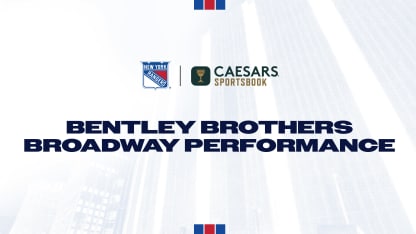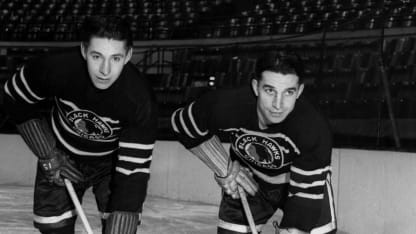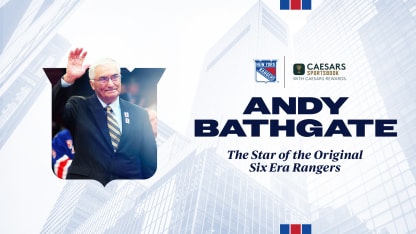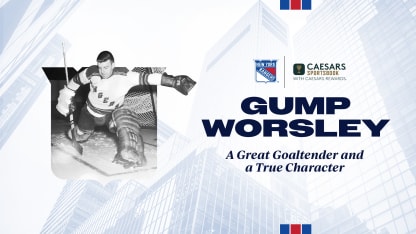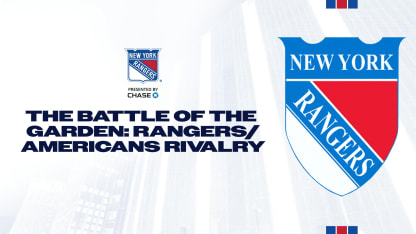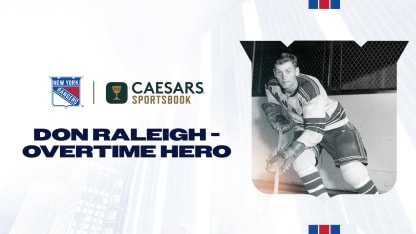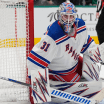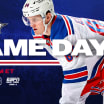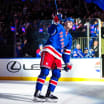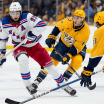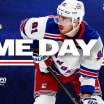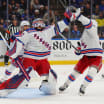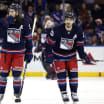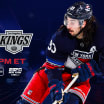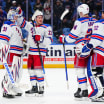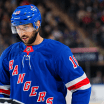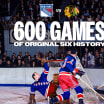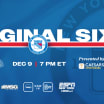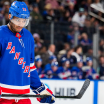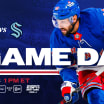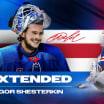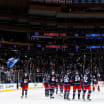Doug and Max were born in Delisle, Saskatchewan (Doug was born in 1916 and Max was born in 1920). Neither player was big in stature (Doug, a left wing, was listed at 5’8” and weighed less than 150 pounds, while Max, a center, was listed at 5’10” and weighed approximately 155 pounds), but they both had exceptional skating ability in terms of speed and agility, as well as puckhandling skills.
Doug made his NHL debut with Chicago during the 1939-40 season at 23 years old, while Max, who earned the nickname “Dipsy Doodle Dandy from Delisle”, made his NHL debut with Chicago as a 20-year-old in 1940-41. Almost from the moment they became teammates in Chicago, Max and Doug took the NHL by storm and became two of the league’s best players.
During the decade of the 1940s, no player in the NHL had more assists or points than Doug, and the only player who scored more goals than him was Montreal’s Maurice Richard. Max had the fourth-most goals and sixth-most points in the league during the decade, and Max and Doug were also first and second in the NHL, respectively, in power play points. And they put up these statistics while missing significant time due to World War II (Max didn’t play in the NHL in 1943-44 and 1944-45, and Doug didn’t play in the NHL in 1944-45).
In 1942-43, Max won the Lady Byng Trophy, registering 70 points (26 goals, 44 assists) while only taking one penalty in 47 games. He finished third in the NHL in scoring, as Doug led the league with 33 goals and 73 points, and he was named to the NHL’s First All-Star Team. The following season, Doug once again led the NHL with 38 goals and was named to the NHL’s First All-Star Team, and he helped Chicago advance to the Stanley Cup Final.
Chicago missed the playoffs without the Bentley brothers in 1944-45, but in 1945-46, Max and Doug returned to the team and were joined by right wing Bill Mosienko, forming the “Pony Line”. Max won the Hart Trophy as the NHL’s Most Valuable Player and the Art Ross Trophy as the league’s leading point scorer with 61 points in their first season together, and he also won the Art Ross Trophy in 1946-47 with 72 points.
The trio showed no signs of slowing down entering the 1947-48 season. But less than a month into the season, Max was traded by Chicago to the Toronto Maple Leafs for five players. It was a deal that shocked not only both teams, but also the NHL as a whole and put an end to one of the best brother acts the league had seen.
The trade had different effects for Max and Doug. Max’s personal statistics in Toronto didn’t reach the same level that it did in Chicago, but he helped the Maple Leafs win the Stanley Cup in 1947-48, 1948-49, and 1950-51. Doug led the NHL in assists in 1947-48 and 1948-49, and he was named to the NHL’s Second All-Star Team in 1948-49 as well, but Chicago was unable to make it back to the playoffs.
Doug’s tenure with Chicago ended early in the 1951-52 season; after suffering a groin injury, he returned home to Saskatchewan and after two months, was named the player-coach of the Saskatoon Quakers, a team in the Pacific Coast Hockey League that had a working agreement with the Rangers. Doug, comfortable at home in Saskatchewan held that role for the remainder of the 1951-52 season, all of the 1952-53 season, and into the 1953-54 season. Max, meanwhile, was limited to only 36 games with Toronto during the 1952-53 season as a result of a back injury, and the Maple Leafs missed the playoffs.
Following the 1952-53 season, Rangers General Manager Frank Boucher had the idea to reunite the Bentley brothers with the Blueshirts. He acquired Max from Toronto in August of 1953 and convinced Max, who was unsure about continuing his NHL career, to play with the Rangers for 1953-54. Doug, however, initially decided that he would continue in his role as player-coach for Saskatoon to begin the season.
That is, until January of 1954, when Boucher finally convinced Doug to join Max and the Rangers. After not playing together for six-and-a-half years, there was tremendous anticipation to see how the Bentley brothers would fare together, and whether they could recreate the magic that made them two of the best players in league history.
Their first game together as Rangers was on January 20, 1954 against the Bruins at MSG. On the day of the game, Doug flew into New York from Saskatoon and arrived just a few hours before the start of the contest. The combination of the Bentley brothers playing their first game together as Rangers, the fact that the Rangers were chasing the Bruins for the final playoff spot in the standings, and that the Rangers’ Head Coach, Muzz Patrick, would be coaching against his brother (and former Rangers’ star and Head Coach) Lynn Patrick for the first time made this a must-see game.
From the drop of the puck, Doug and Max didn’t disappoint. Their linemate was Edgar Laprade, an outstanding playmaker in his own right over his Hall of Fame career with the Rangers. Doug scored the first goal of the game at 12:29 of the first period. Less than three minutes later, Max set up Wally Hergesheimer’s power play goal to give the Rangers a 2-0 lead. Less than one minute after Hergesheimer’s goal, Doug and Camille Henry combined to set up Paul Ronty’s power play goal to give the Blueshirts a three-goal lead.
The Bruins scored two goals before the end of the first period to cut the deficit to one, but early in the second period, Doug set up Max for a goal to give the Rangers a 4-2 lead; Doug elevated the pass over the stick of a Bruins defenseman and right onto Max’s stick, and Max’s shot beat Bruins goaltender (and former Rangers goaltender) Jim Henry. Then, two-and-a-half minutes later, Doug and Max set up a power play goal for Henry to give the Rangers a 5-2 lead. In the third period, Max scored the final goal of the game with just under five minutes remaining in regulation, drawing another standing ovation from ‘The Garden Faithful’.
In the Rangers’ locker room following the game, Max shed tears of happiness over the performance that he and Doug had, recapturing the magic that they shared for so many years. And Doug, speaking for him and his brother, told reporters that, “I’ll never forget tonight’s game as long as I live.”

